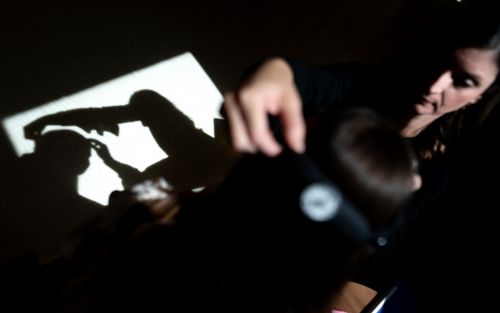St. Jude Family of Websites
Explore our cutting edge research, world-class patient care, career opportunities and more.
St. Jude Children's Research Hospital Home

- Fundraising
St. Jude Family of Websites
Explore our cutting edge research, world-class patient care, career opportunities and more.
St. Jude Children's Research Hospital Home

- Fundraising
Tara M. Brinkman, PhD
Understanding the prevalence and impact of psychological and behavioral late effects on survivors’ health to develop interventions that improve these outcomes
Overview
Survivors of childhood cancer are at risk of developing behavioral and psychological effects many years after the completion of treatment. Unfortunately, the late effects of childhood cancer are often underappreciated in terms of their potential impact on survivors’ physical health and quality of life. My research aims to better understand the prevalence and impact of psychological and behavioral late effects on survivors’ health and functioning, and to identify interventions that can improve these outcomes.

Brinkman research summary
Behavioral and psychosocial late effects of childhood cancer treatment can significantly impact the quality of life and health of survivors. For example, we have shown that stress and psychological distress are associated with the long-term cardiovascular health of survivors, independent of traditional and treatment-related cardiovascular risk factors.
In the Department of Epidemiology and Cancer Control, I conduct collaborative research to improve our understanding of psychosocial late effects, particularly the long-term emotional, social, and behavioral outcomes of pediatric cancer and its treatments. Our approach involves characterizing these late effects, understanding their impact on survivors’ health and daily functioning, and developing interventions to ameliorate these late effects and their consequences.
An ongoing research study conducted through St. Jude LIFE involves characterizing psychosocial morbidity to better understand how individual indicators of psychosocial health co-occur. These indicators of psychosocial health include survivors’ emotional health status, health behaviors, socioeconomic status, and ability to achieve independence as adults. We examine the impact of psychosocial morbidity on the chronic health conditions, quality of life, and mortality in adult survivors of childhood cancer.

Beyond characterization of late effects, I am interested in conducting interventions to improve long-term outcomes for survivors of childhood cancer. I am the co-principal investigator on an eHealth intervention in the Childhood Cancer Survivor Study. This web-based, cognitive behavioral therapy intervention is designed for survivors who have symptoms of insomnia. We investigate the effects of this intervention on sleep, neurocognitive function, cardiovascular health, and quality of life in survivors.
Another intervention we conduct focuses on improving executive dysfunction in adult survivors of childhood leukemia. This study involves computerized cognitive training paired with transcranial direct current stimulation (tDCS), a non-invasive form of brain stimulation. We assess improvements in executive function using objective cognitive testing, self-report of perceived cognitive impact on daily life, and changes in brain function/activity using neuroimaging techniques.
We also are developing additional studies with tDCS to improve pain and sleep in survivors of childhood cancer.
Understanding and improving the psychosocial consequences of childhood cancer and its treatment is crucial as we try to improve quality of life and health outcomes for patients and survivors of childhood cancer.
Brinkman selected publications
About Tara M. Brinkman
Dr. Tara M. Brinkman is a Member in the Departments of Psychology and Biobehavioral Sciences and Epidemiology and Cancer Control, where she leads research focused on the characterization of and interventions to improve behavioral and psychosocial late effects of childhood cancer. After receiving her PhD from Michigan State University, she completed an internship at the Kennedy Krieger Institute/Johns Hopkins University and a Postdoctoral Fellowship at the Dana-Farber Cancer Institute/Harvard Medical School. Dr. Brinkman is a Co-Leader for the Behavioral and Psychosocial working group for the Cancer Control and Survivorship Program at St. Jude and is a member of the Psychology Advisory Group for the Childhood Cancer Survivor Study. She is also a member of the Children’s Oncology Group Long-term Follow-up Guidelines Psychosocial Task Force.

Affiliations and Collaborations
Contact Tara M. Brinkman
Tara M. Brinkman, PhD
Member, St. Jude Faculty
Department of Psychology and Biobehavioral Sciences
MS 740, Room R4005
St. Jude Children's Research Hospital
Memphis, TN, 38105-3678 USA

Memphis, TN, 38105-3678 USA GET DIRECTIONS